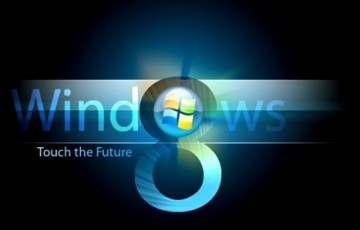 Consumers are shunning expensive Ultrabooks for strong features as well as making sure they try before they buy, retailers have said.
Consumers are shunning expensive Ultrabooks for strong features as well as making sure they try before they buy, retailers have said.
Despite hopes that Windows 8 and Ultrabooks would see a rise in sales over the Christmas period after a damp 2012, people kept their purse strings tight and shunned the internet to visit stores and make considered purchases.
One nation wide PC retailer said, speaking with ChannelEye, that in-store sales were higher than net sales, on average. “I think this is because people wanted to come in and have a play,” the retailer said. “It’s not like it used to be where you’d just buy a model over the net and if it wasn’t as good, replaced it a few years later – people are looking for reliable models that are worth their price tag”.
Another nation-wide retailer that stocks technology agreed, telling ChannelEye that try before you buy is growing and there has been a lot of footfall in the technology sections, where products are expensive and considered purchases. “The economic climate has dictated that this needs to be done to have an enduring product that complies to needs,” the retailer said. “Laptops are no longer throwaway products or hand-me-downs. They are important for business needs and therefore need to last and be easily upgraded”.
It was hoped that Windows 8 and Ultrabooks would get a Christmas boost after a slow 2012. However, research from IDC showed that Windows 8 failed to encourage shoppers to part with their cash, with many sticking to their old laptops and installing the new OS on there.
One source at a nation wide PC retailer, however, pointed out that the operating system was instrumental in pushing some sales, although Ultrabooks remained on the shelves.
“Sales of both were pretty poor for the Christmas period if I’m honest. Windows 8 pulled in more revenue, while Ultrabooks, slipped even further down.” the source said. “Laptops equipped with Windows 8 software did better than Ultrabooks, showing people aren’t fussed about size. They just want a reliable machine.”
IDC suggested the lack of sales were down to PC vendors getting too involved in promoting the touch feature of Windows 8, while Intel’s emphasis on its skinny form factor did it no favours as the price tag was still sky high.
The PC retailer agreed that at the moment, people aren’t looking for style, but “they are looking for a rugged laptop with business and necessary bells and whistles and there are lower end laptops that offer this, meaning people will pay a price for the OS but not the design”.
However, one distributor had other ideas on how the market had fared, claiming that his company had been left hardly any surplus stock of Windows 8 equipped hardware.
“Windows 8 did better than we expected over the Christmas period and we were hardly left with any surplus stock,” he said. “However, January has proved a little bit quieter. This is obviously expected. People paid for these machines at top end prices during the festive season because they want something that can be wrapped up and shown off under the tree. These people are probably who Microsoft was targeting. Those with money.
“Now, the sales are depending on people with lower incomes who just don’t have the cash to splash on brand new laptops,” the distie said.
 VIP Computers is offering indie PC retailers sale or return gaming packs in a bid to help out the smaller resellers.
VIP Computers is offering indie PC retailers sale or return gaming packs in a bid to help out the smaller resellers.







